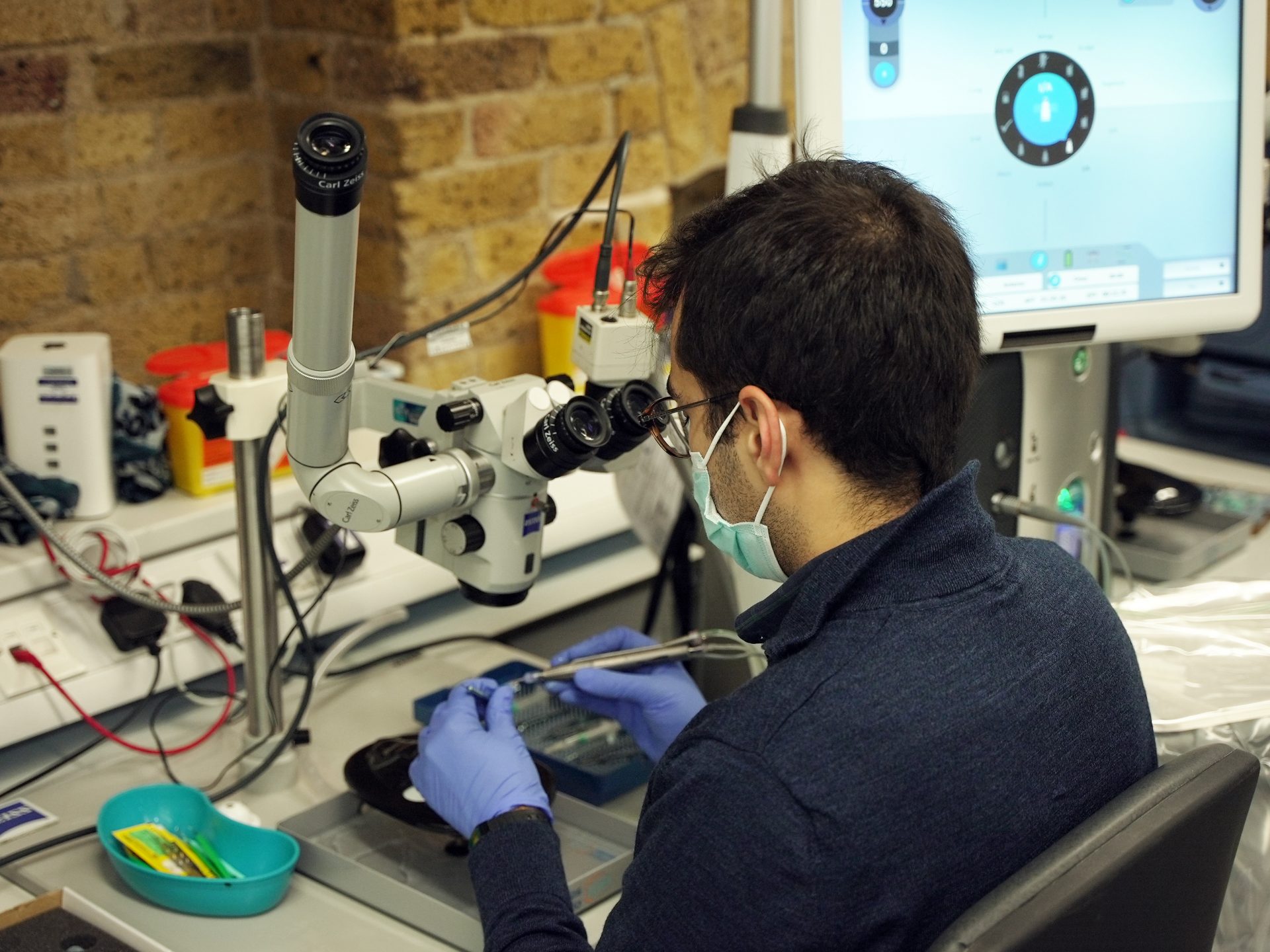Simulation training using artificial model eyes and artificial intelligence (AI) is transforming the way trainee ophthalmologists develop surgical and clinical skills by simulating live surgery situations. Frequent practice on simulators, such as the state-of-the-art EyeSi surgical simulators, enables trainees to become familiar with surgical steps and finesse their techniques in a safe environment.
We encourage all trainee ophthalmologists to use simulation extensively. This can make all the difference in building the confidence to perform safe and efficient ophthalmic surgeries.
At the College we have pioneered the use of simulation training using our state-of-the-art skills centre. All trainee ophthalmologists must attend a mandatory Introduction to Phacoemulsification Surgery course in our skills centre before attempting live surgery as an ST1. Here they gain hands-on practice using the EyeSi simulator and surgical microscopes as well as expert tutoring from senior ophthalmologists.
We also offer specialised skills courses such as Ocular Traumas that offer more experienced trainees and ophthalmologists a chance to refine their surgical proficiency.
Want to practice on our EyeSi surgical simulators?
When our skills centre isn’t being used for a course any trainee ophthalmologist can book a slot to practice on our EyeSi surgical simulators.
Eye-Site
Simulation training is best supported by theoretical training. Eye-Site is an online training resource for ophthalmologists to use throughout their career. Trainees especially are encouraged to access these resources to get to grips with theoretical aspects of surgical procedures.
Find out more about Eye-Site and how to access these resources.
Types of simulation training
Simulation training in ophthalmology can take many forms, all ophthalmologists should be familiar with these areas.
Laser simulation
All commonly performed laser procedures can be simulated using model eyes. Many model eyes are very life-like and offer an excellent opportunity to understand the concept and practice of laser procedures. Eye-Site has mandatory laser training modules for all trainee ophthalmologists to be completed before using laser machines.
Ocular simulation
By using the latest model eyes ophthalmologists have an unparalleled opportunity to learn complex surgical techniques. Simulation can mean trainees are better able to manage complications and offers a chance to showcase their skills in order to progress to more advanced procedures. Simulation can also be used to demonstrate learning against the Ophthalmic Specialist Training (OST) curriculum outcomes.
All ophthalmologists should use simulation before trying new techniques. It can help those returning to work from an out of programme experience, career break or family leave, to regain confidence to perform surgery.
Situational awareness and immersive simulation
Immersive simulation is the pinnacle of simulation training. This method requires trainees to use complex skills in a range of simulated surgery scenarios. In a real theatre setting, with a full body of support staff, trainees can be fully immersed in the learning experience.
To react appropriately to ocular and medical emergencies all eye department staff should regularly practice protocols, especially those rare situations such as posterior capsular rupture.
Communication skills
High levels of communication and interpersonal skills are vital for all ophthalmologists and are a core area of the OST curriculum outcomes. Simulation can support trainees to learn these essential skills by encouraging clear communication and being confident with shared decision making in surgical scenarios. Alongside situational awareness and professional behaviour and judgement, communication skills are a core learning from simulation training.

